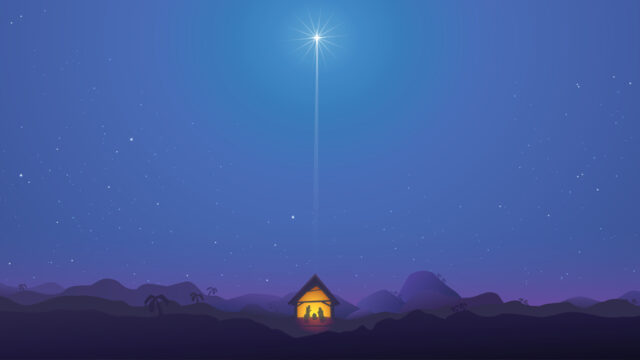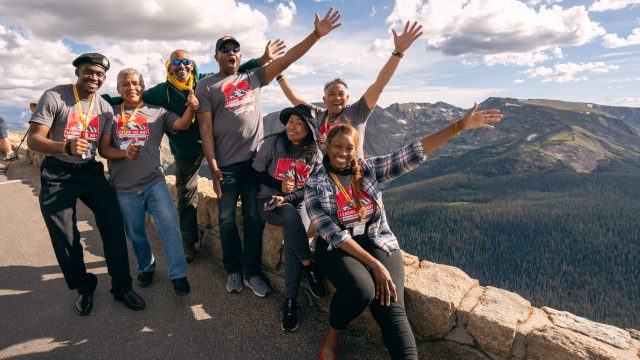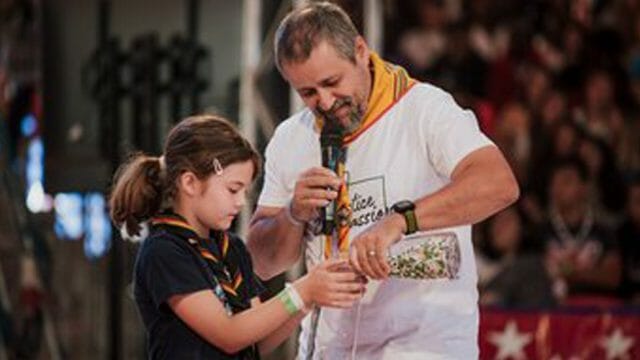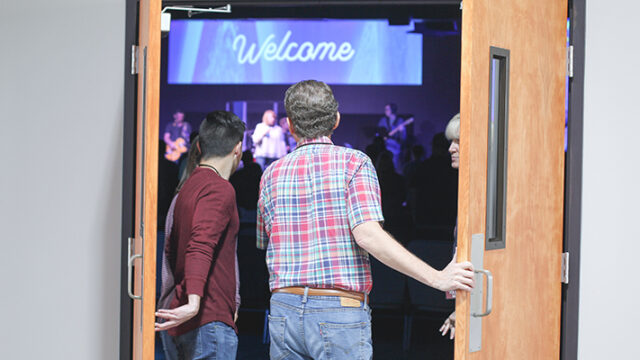Church-member farmers and ranchers in the U.S. share their joys and challenges.
For many, a job is a four- or five-day workweek consisting of 8 to 10 hours per day before going home. However, for the farmers and ranchers of Wyoming, United States, it is a 24/7 way of life.
Tilling the soil and caring for the animals God created can often be challenging, but the benefits outweigh the difficult work. The Pedersens, cattle ranchers and members of the Wheatland Seventh-day Adventist company, see their livelihood as a sustainable way of life.
“Americans are fast losing hold of the food supply. Just seeing the COVID lockdown shows how important it is to have American agriculture and its resources readily available to us. We need to be more sustainable on a grassroots level,” the Pedersens say.
However, sustainability is only one of the reasons for this need. “Our family tries to apply a clean-eating model with simple ingredients that are locally sourced. We like to know how our beef was raised, what conditions they lived their lives in, and that they were given the best possible care along the way. This is what has led us to finish our own beef. We feel blessed to be able to offer that assurance to our buyers.”
For others, like the Ludemans, homesteaders and members of the Wheatland company, the lifestyle is about being financially independent. “We raise chickens, dairy goats, cows, and horses, and also grow a garden and preserve our harvest. We are doing pretty well in this economy. We grow and raise most of our food, and that helps with expenses.”
The challenges are ever-present for the Ludemans and Pedersens.
For the Ludemans, it’s the long Wyoming winters. “The biggest challenge we have as homesteaders in Wyoming is providing grass and hay for our animals and keeping them warm in the winter.” For the Pedersens, it is trying to maintain a ranch while also maintaining other work. “It’s not our only job, so working it all in leads to very long days and nights for the whole family.”
For some, making friends and relating to homesteaders and ranchers can seem like a daunting task, mainly when their knowledge of sustainable living is confined to walking down the aisles of a supermarket twice a week.
Shayne Vincent, pastor of the Casper church district, explained that becoming friends and discussing religious topics is often a long-term effort, but it is worth it. “Ranchers and farmers are good people — shirt-off-their-back type of folk — where life is more about character and how you treat people than what you believe.
“For non-members, religion is one of those topics reserved only for the best of friends and sometimes family. This makes evangelism a long-term process of winning respect rather than short-term fact-based change.”
The Pedersens echo Vincent’s sentiments. “The agriculture community is uniquely aware of the blessings and provisions of God. If you take the time to get to know these people, you will find a group with a profound respect for the Lord and His ways. Then the Spirit can open doors to share the messages of the three angels, the hope and joy we have as earth wraps up its final scenes and can make you friends for eternity.”
Vincent added, “In these parts of the country, it is mostly traditional values. Hard work and treating your neighbor right are what folks aspire to. In addition, taking care of your animals is a daily part of life for those in and out of the city. Their love for the Bible and their practical wisdom makes our members integral and respected members of the community.”
With a demanding lifestyle, it may seem not very easy to get a full day of rest per week, but Saturdays (Sabbaths) are more than just another never-ending workday.
“Animals are fed on the Sabbath. We eat, and they eat; the Sabbath doesn’t change that. God has provided blessings on the other six days of the week. We let things rest on Sabbath, us and our animals; thus, the very long days the rest of the week,” the Pedersens explained.
The Ludemans also have animals to take care of on the Sabbath. “We still have to feed the animals on the Sabbath. We also have to milk the goats, but it only takes a few minutes out of the day. We do not ride our horses on the Sabbath.”
If a rancher or homesteader arrives late or misses church, be gentle with them, is the Pedersens’ plea. “Don’t give your farming and ranching neighbors dirty looks if they come into church late. They probably had calves out. Don’t judge them if they miss a Sabbath. Maybe they had a cow or a goat in labor, or their irrigation water went out of control and was about to flood the highway. Just smile, and [be] glad they made it when they come to church or events.”
For the Petersens, the best way to do outreach is by being part of the community. “There are many agricultural organizations that we can support, get to know, and be involved within the community,” they explained.
The Ludermans are also involved in the community. “As homesteaders, we are able to provide fresh eggs, goat and cow milk, and produce from our garden to people in our community. We make goat milk soaps and cheese as well. We enjoy providing fresh, organic foods to our community. We are hoping to provide equine therapy for our community in the near future.”
For both families, their way of life is something they hope to pass along to future generations. “We hope our children learn to appreciate the land and resources God has provided us so that they can understand where their food comes from and how to manage those resources responsibly and to do their work for the Lord and honor Him with their labor and integrity. We hope to pass on a willingness to work hard and serve wherever God calls our children,” the Pedersens explained.
The Ludermans have the same hope. “We think that there will always be homesteaders. We would love for our children and grandchildren to learn how to homestead and provide for themselves.”
“Homesteading is a very rewarding, heartwarming, sometimes heartbreaking way to live,” the Ludermans added. “We feel closer to God when we are in the garden or with the animals. It is a great feeling to be able to share the things that God has provided from our homestead with our community.”
The final piece of advice the Pedersens would like to share with their non-agricultural church members is to help them out where you can. “If you have the opportunity to lend a hand, do it. You will gain valuable skills and another perspective. Many religious talks happen in an alleyway, at a butcher table late at night, or after rounding up a loose cow. Remember to pray for them when they are absent. Guaranteed, they are lifting up prayers over whatever has kept them away. Offer to pray for and with them,” they said.
The original version of this story was posted on the Rocky Mountain Conference news site.








